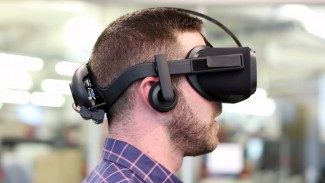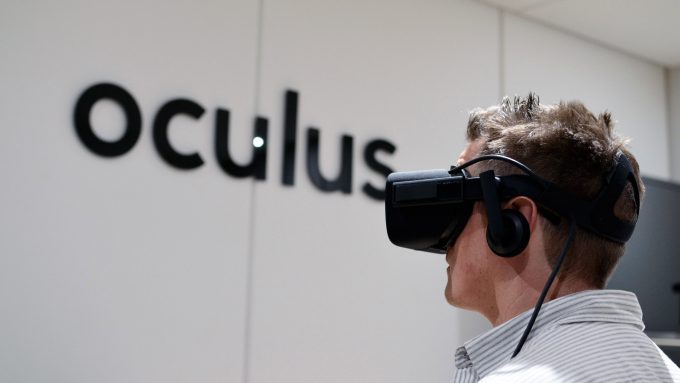During an interview at the Game Developers Conference at the end of March, head of Oculus’ PC VR division Brendan Iribe stated that the Rift will remain the company’s flagship VR headset for “at least the next two years”. The report by The Verge also discussed the company’s future direction for inside-out tracking and glove-free hand tracking.
Since stepping down as Oculus CEO, Brendan Iribe has lead the PC division of the company, a role focused on the day-to-day development of leading edge VR technology—so this estimated timeframe carries significant weight.
HTC has offered similar prescriptions, describing recently the likely generational cycle for VR headsets to sit somewhere between a smartphone and a games console, and there have been grand predictions for major technical advancements that are less than five years away. It seems likely that the two companies will continue to compete at the high-end of VR with similar schedules, although recent hints from HTC suggest a possible 2018 launch for next-generation hardware, such as Daniel O’Brien’s interview with Digital Trends, and Gabe Newell’s discussion about massive display advancements arriving in 2018 and 2019, and the expectation for integrated wireless by 2018.


In terms of wireless, Oculus is looking at both untethering the headset as well as removing the need for external sensors, as the company recently demonstrated with their Santa Cruz prototype. This standalone VR headset is still on the way, and will be coordinated by Oculus’ mobile division, Iribe says, but he may be hinting that their Rift PC headset could embrace inside-out tracking too.
In February, Facebook CEO Mark Zuckerberg posted photographs of his Oculus Research lab tour, and Iribe teased multiple breakthrough technologies “from advanced optics and display systems to revolutionary tracking and machine perception”, one of which was recently revealed as the Focal Surface Display.
“Everything we’re doing is still research-oriented”, said Iribe, indicating that the new technology is still a long way from production spec. For example, the prototype tracking gloves worn by Zuckerberg are very unlikely to become a consumer product, as fit and comfort are difficult problems to solve. “In the future, we’re trying to pioneer natural hand gestures without gloves,” Iribe said.
Both Oculus and HTC are looking to make meaningful advancements before committing to a new generation of hardware, and it takes time for the components to reach a level of affordability and production-readiness. Iribe believes the current Rift has a long life ahead; it won’t be superseded for “at least the next two years”, and will remain relevant after the fact. “I think you’ll see even beyond that, a lot of people will be using this first [generation]”.

